Online BSN to DNP – Family NP Program
Overview
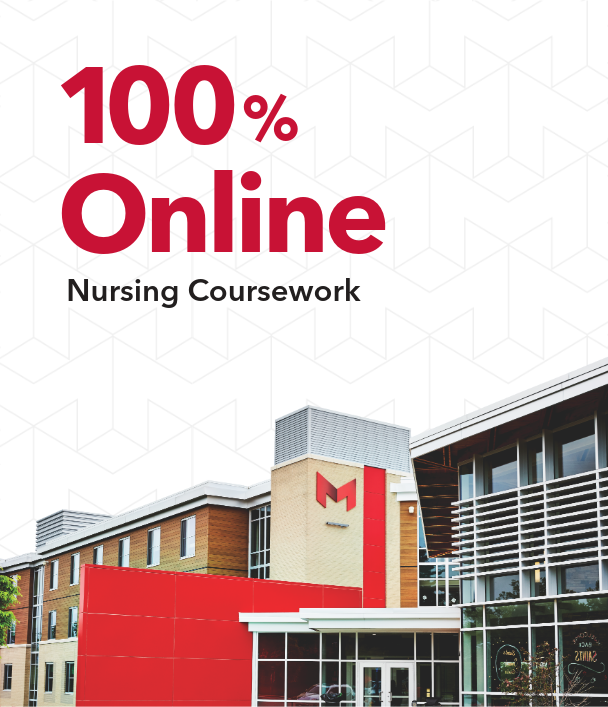
Why choose Maryville’s accredited online BSN to DNP-FNP program
- Access coursework 100% online with no campus visits required.
- Apply with no GMAT, GRE, or statistics needed.
- Earn your BSN to DNP-AGPCNP in as few as 40 months.
- Get personalized support from application through graduation.
- Complete clinicals locally in your preferred setting.
- Enjoy no waiting list once you’re accepted.

Are you ready to take the next step in your nursing career?
Maryville University’s online BSN to DNP Family Nurse Practitioner program is designed for experienced nurses ready to advance their careers by specializing as family nurse practitioners. This online program helps you achieve one of the highest nursing credentials while preparing you to deliver comprehensive care for patients across the lifespan.
Our program focuses on advanced clinical knowledge, leadership in healthcare, and evidence-based patient care. With an emphasis on family practice, you can build the skills needed to excel in managing acute and chronic conditions in patients of all ages.

Our online BSN to DNP Family Nurse Practitioner graduates:
- Provide advanced care for individuals and families with diverse health needs.
- Focus on patient-centered care and preventative health strategies.
- Lead initiatives to improve access to healthcare and outcomes for communities.
- Serve as leaders and advocates in family-focused nursing practice.
- Mentor and support the development of future family nurse practitioners.

Why choose our online BSN to DNP program?
Hear from our expert faculty and staff about what makes Maryville’s online nursing programs unique. Learn how our focus on family practice can prepare you for leadership roles in healthcare.

You can learn to lead in healthcare
The demand for family nurse practitioners is rapidly growing. As healthcare evolves due to shifting regulations, changing demographics, and advancing technologies and techniques, FNPs who can provide primary care across all ages are more essential than ever.
Maryville’s online BSN to DNP-FNP program is designed to equip experienced nurses to excel advanced family practice nursing roles. Gain the expertise to meet the challenges of providing holistic care for individuals and families of all ages and backgrounds.

How quickly can you earn your DNP?
As a BSN-prepared nurse, you’ve already laid the foundation for your career. Our accelerated BSN to DNP program is designed to be completed in about 40 months, allowing you to skip the master’s degree and fast-track your education to focus on advanced family practice at the doctorate level.
Take the next step to advance your nursing career and make a lasting impact on patients of all ages.

Benefits of the online BSN to DNP programs:
- Graduate from a program accredited by the Commission on Collegiate Nursing Education (CCNE) that focuses on family care.
- Save time and money by earning your DNP without completing an MSN.
- Enjoy the flexibility of an online format that fits your schedule.
- Get full, personalized student support and counseling from application through graduation and beyond.
- Conduct research through clinical inquiry courses to enhance outcomes in family care.
- Learn from dedicated faculty with real-world experience in family nursing practice.
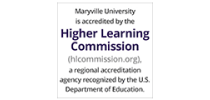
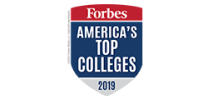
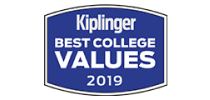
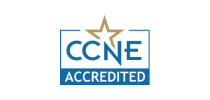
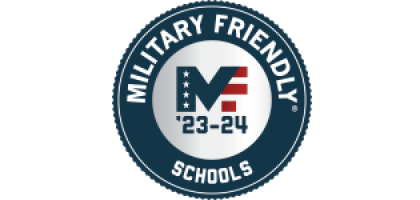
Important dates for 2026
Program details

The Maryville online BSN to DNP-FNP program is designed to:
- Equip you to provide comprehensive care for individuals and families across all stages of life
- Expand your knowledge in advanced nursing practices, healthcare systems, and leadership in clinical settings
- Prepare you for FNP certification, empowering you to play a key role in improving family and community health outcomes
- Address the increasing demand for primary care providers in urban, suburban, and rural communities
- Strengthen your skills in evidence-based practice, clinical decision-making, and advanced patient care

BSN to DNP-FNP: A deeper look
Our online BSN to DNP program allows you to earn your DNP while completing the necessary coursework to sit for the FNP certification exam and become a certified nurse practitioner.
This program provides the advanced education you need to oversee primary care for patients of all ages. Whether your goal is to expand your clinical practice, transition into leadership roles, or influence policy and education, this pathway is designed to give you the tools to make a difference at every level of nursing.

Family nurse practitioner (FNP)

DNP vs. PhD in Nursing
The two main terminal degrees in nursing are the DNP and the PhD. While a PhD emphasizes academic research and teaching, the DNP focuses on clinical practice and healthcare improvement.
If your goal is to advance patient care and lead in practice-based roles, the DNP is likely the better fit for your career ambitions. With a DNP, you’ll also have opportunities to move into leadership, policy, education, or administrative roles, giving you the flexibility to shape the future of healthcare.

The field needs you now
As healthcare evolves, the demand for family nurse practitioners continues to grow. FNPs play a critical role in delivering accessible, high-quality care across all stages of life. This growth is driven by a shortage of primary care providers, a stronger focus on preventive care, and the need for healthcare in diverse environments.
Now is the time to step into a leadership role and make a meaningful difference in patient care.

Dedicated student support from application through graduation
At Maryville, your success is our priority. Through our online BSN to DNP-FNP program, we provide the resources and support you need to thrive every step of the way. From application to graduation, our team is here to guide you.
- Personalized student support advising
- 24/7 technical help desk
- Online study and tutoring services
- Access to the library and other learning tools
Learn more about our dedicated student support coaches here.

Choose your BSN to DNP concentration
If you’re looking to specialize within family-focused primary care, our BSN to DNP program offers multiple concentration options to tailor your education to your goals. Build the expertise you need to lead in your chosen area of nursing practice.
Careers

What can you do with your BSN to DNP-FNP?
Our online BSN to DNP program is designed for nurses who aspire to lead and excel in direct patient care or in roles across clinical, educational, administrative, and nonclinical settings.
By earning your BSN to DNP with a Family Nurse Practitioner (FNP) focus, you can prepare to provide comprehensive care to patients of all ages while driving improvements in healthcare outcomes for individuals, families, and communities.
DNP graduates are equipped to lead change across the healthcare landscape and enjoy greater earning potential. According to PayScale, DNP-prepared nurses and NPs earn approximately $9,000 more annually than those with only a master’s degree.

Career prospect statistics for DNP-educated nurses and NPs
- The U.S. Bureau of Labor Statistics
predicts a 35% increase in advanced nursing roles, including nurse practitioners (NPs), between 2024 and 2034. - As the demand for primary care grows — exacerbated by a projected shortage of 86,000 physicians by 2036 — family nurse practitioners will play a critical role in delivering essential care.
- Family nurse practitioner ranks among the top 11 highest-paying nursing careers, according to career resource Indeed.
- Although an MSN has traditionally been the standard for NPs, organizations like the American Association of Colleges of Nursing (AACN) and the National Organization of Nurse Practitioner Faculties (NONPF) are advocating for the DNP as the preferred credential for advanced practice nursing.

Online BSN to DNP program graduates career outlook summary
Across the U.S., nurse practitioners are gaining increased autonomy and greater responsibilities. This shift is driven by healthcare policy changes, the need for preventative care, and staffing shortages in critical roles like nurses and physicians. Family nurse practitioners, in particular, are in high demand as they are uniquely qualified to provide care to patients across the lifespan.
DNP-prepared nurses bring exceptional leadership skills and advanced expertise, making them well-suited for high-impact clinical roles and leadership positions.

DNP-educated nursing professionals are industry difference-makers
A BSN to DNP degree provides the flexibility to pursue impactful roles across diverse healthcare settings. FNP-trained DNP graduates are in high demand to address a variety of acute and chronic care needs, as well as to lead improvements in preventative care.
DNPs also excel in education. The AACN has highlighted a shortage of nursing faculty, with more than 80,000 qualified applicants recently turned away from nursing programs due to staffing gaps. DNP-educated professionals are essential to bridging this gap, training the next generation of primary care providers.

What can online BSN to DNP graduates do?
Earning a DNP, the highest practice-focused degree in nursing, opens the door to a wide range of career opportunities. FNP-trained DNP graduates apply their advanced skills in roles that go beyond clinical care:
- Serve as a nurse educator in academic or clinical training settings.
- Open and manage a private practice focused on family primary care.
- Lead as an executive in healthcare administration or policy.

What can online BSN to DNP graduates do?
- Advocate for healthcare access and equity at local, state, or national levels.
- Conduct impactful research to improve patient outcomes and care protocols.
- Open an autonomous practice (24 states now permit those with a DNP to open their own clinics).

What careers can I pursue with my online BSN to DNP degree?
Find out more about DNP and DNP-NP careers here.

What careers can I pursue with my online BSN to DNP degree?
Nurses with a DNP may also explore other opportunities in the field, such as:
- Chief nurse anesthetist
- Chief nursing officer
- Director of nursing services
- Health policy analyst
- Hospital CEO
- Medical and health services manager
- Nursing manager or supervisor
- Nurse midwife
- Nursing professor

Where do BSN to DNP-FNP graduates find job opportunities?
Graduates of an online BSN to DNP program with an FNP focus are equipped to thrive in a variety of healthcare and related settings, such as:
- Colleges and universities
- Community health centers
- Hospitals and clinics
- Long-term care facilities
- Nursing research facilities
- Rehabilitation facilities
- Retirement homes
- Specialty practice, such as cardiology or oncology

What is the typical salary for online DNP program graduates?
As of 2025, PayScale reports that DNP-prepared professionals earn an average base salary of $115,000, with some roles offering even higher pay and job satisfaction.
In clinical settings, family nurse practitioners tend to earn more than administrative roles. For example, the U.S. Bureau of Labor Statistics reported a median salary of $129,000 for nurse practitioners in 2024. Family nurse practitioners are among the top-earning nursing specialties, according to Indeed.

What is the typical salary for online DNP program graduates?
With a DNP, you can pursue advanced roles with higher salaries*, whether in patient care or leadership. Some examples include:
- Chief nursing officer (CNO): $148,000
- Clinical nurse specialist: $104,000
- Director of nursing services: $102,000
- Nurse manager: $98,000
Earn an education with a strong ROI
We’re proud to be recognized among the leaders in social mobility in our region*:
- No. 1 in social mobility among private colleges and universities in the St. Louis area
- No. 1 in lowest average debt among regional private peers
- Top 3 in St. Louis for graduation rates and early-career earnings
These rankings serve as indicators of strong ROI for our graduates — meaning your Maryville education can help you start faster and go further.
Testimonials
“The way that the curriculum is set up at Maryville, each semester built upon the previous one, so we’re learning as we go. It’s not an overwhelming process. A lot of times, that’s much like our careers are in the healthcare field. We all have something new to learn, every single day.”
— Tiffany N., graduate, Doctor of Nursing Practice
“With the DNP, it allows me to become a faculty member, or it allows me to become more understanding of research … in a clinical setting, which is huge. It gave me the self-confidence I have been looking for my whole adult life.”
— Megan J., graduate, Doctor of Nursing Practice
Study with support and graduate with confidence
Our BSN to DNP program is designed to work with you through a flexible schedule that respects your commitments. We offer the support, insightful advising, and resources to turn your vision into reality.
Meet 2025 grad Ashley Davis, a BSN nurse with three children who completed her DNP while working, crediting faculty communication, individualized support, and our adaptable online format for her success.
Curriculum
Want to advance your nursing career and make the biggest impact possible? If you have your Bachelor of Science in Nursing, then our online BSN to DNP programs are for you.
We designed our curriculum to help you become a researcher, practitioner, decision-maker, and leader at the highest levels of the nursing profession. With advanced courses in health promotion, pathophysiology, biostatistics, research, and systems leadership, our curriculum prepares you for success at the top of the nursing field.
The online BSN to DNP curriculum offers three entry points per year: Spring, summer, and fall. This blended degree features five distinct program concentrations and includes master’s and doctoral-level courses, all of which can be completed 100% online.
Bachelor of Science in Nursing to Doctor of Nursing Practice (BSN to DNP) core courses
BSN to DNP core courses (56 credit hours)
This course explores focused and comprehensive health assessments in a variety of settings and patients across the lifespan. This includes development of health promotion strategies and prioritization of care.
Prerequisite: Online - NURS 611, NURS 615 Corequisite: On Ground - NURS 615
This course focuses on the pharmacological foundation for safely prescribing medical regimens of illnesses for individuals across the lifespan. Also included are illness prevention, non-pharmacological and legal implications for prescriptive authority for the nurse practitioner.
Note: Selection of appropriate therapies, patient education and evaluation parameters are stressed.
This course is designed to introduce students to the purpose, content, and methods of epidemiology and biostatistics. Students will learn to evaluate and use output from statistical computing software.
Prerequisite: NURS 710
This course is designed to explore the phenomenon of interest related to the DNP scholarly project. Students will systematically develop a project protocol that is supported by the literature and submit it for department approval.
Course objectives:
- Develop a clinical question that guides the scholarly project.
- Read critically from professional nursing literature and other related disciplines to interpret, analyze and apply current research to improve practice.
- Apply a systematic approach to address clinical problems within healthcare organizations, including outcome measures and a sustainability plan to create meaningful changes in clinical outcomes.
- Develop a protocol and submit it to the DNP council for project approval.
- Develop the first chapter of the scholarly project that includes needed sections based on the selected DNP project format.
This course is designed to emphasize an objective approach to the integration and synthesis of knowledge. Manuscript preparation and practical use of evidence are incorporated to prepare students for the design of research proposals.
Prerequisite: NURS 700 and NURS 701
This course will allow the students to design an evidence-based project that will guide clinical practice. The feasibility of conducting this initiative will be explored. Potential funding sources and budget issues will be examined. Students will apply the elements of protection of human subjects and complete the Maryville IRB.
Prerequisite: NURS 700, NURS 701, NURS 702, and NURS 703
This course is designed to expand the students knowledge of clinical project data collection and analysis of data. Students will apply integrated research concepts pertaining to the clinical project. Utilization of various methods of data analysis and data management systems will be explored. Complete project data is needed prior to the start of this course.
Prerequisite: NURS 705 and NUS 705L
This course is designed to expand the students understanding of methods of dissemination in translational research. Variables that impact the analysis of data related to the scholarly project will be examined. Implications for patients, clinical practice and the healthcare systems will be explored and findings disseminated.
Prerequisite: NURS 706
This course is designed to provide an understanding of the measurement of phenomena as it relates to the research process. Procedures for selecting, applying, and interpreting the correct statistical application to a research problem will be presented with students processing the results.
Prerequisite: NURS 700
FNP concentration curriculum (18 credit hours)
This course covers the care of adults experiencing acute, chronic and complex health problems of select body systems in this first of two sequential courses. Current research based interventions are analyzed. Individual, family, and group counseling/education for patients and families are incorporated. Included is primary, secondary and tertiary disease prevention and management of complex symptomatology.
Prerequisite: NURS 611, NURS 612, and NURS 615
Corequisite: NURS 621 or NURS 621C
This course will cover the theoretical, clinical and role components of care by an advanced practice nurse and are integrated in a supervised clinical practicum.
Prerequisite: NURS 611, NURS 612, and NURS 615
Corequisite: NURS 620
This course covers the care of adults experiencing acute, chronic and complex health problems of select body systems in this second of two sequential courses. Current research based interventions are analyzed. Individual, family, and group counseling/education for patients and families are incorporated. Included is primary, secondary and tertiary disease prevention and management of complex symptomatology.
Prerequisite: NURS 620 and NURS 621 or NURS 621C
Corequisite: NURS 624 or NURS 624C
This course will cover the theoretical, clinical and role components of care by an advanced practice provider and are integrated in a supervised clinical practicum. Opportunity is provided for the assessment, management, and evaluation of adults with chronic and acute health problems in a primary care setting.
Prerequisite: NURS 620 and NURS 621
Corequisite: NURS 623
This course prepares Family Nurse Practitioner students to develop expertise and assume responsibility for health promotion, maintenance, and management of chronic and acute illness of children and women’s health. Emphasis is placed on the child within the framework of the family.
Prerequisite: NURS 623 and NURS 624 or NURS 624C
Corequisite: NURS 630 or NURS 630C
This course provides the student with an opportunity to assume responsibility for the primary health care services of individuals and families under clinical supervision. The student is expected to assume increasing responsibility for planning and implementing therapeutic processes and for documenting and evaluating outcomes of care. The role of the FNP in health care promotion and management and collaboration with health professionals.
Prerequisite: NURS 623 and NURS 624
Corequisite: NURS 629
To ensure the best possible educational experience for our students, we may update our curriculum to reflect emerging and changing employer and industry trends. Undergraduate programs and certificates are designed to be taken at a part-time pace. Please speak to your advisor for more details.
Professional licensure and certification regulations vary from jurisdiction to jurisdiction. Students are encouraged to visit the National Council of State Boards of Nursing for the state in which they intend to practice to verify specific licensure requirements which includes ensuring the program of interest meets the licensure requirements prior to enrolling. Students may visit the professional licensure page or reach out to our team of enrollment advisors for guidance.
Admission requirements

- BSN degree from a regionally accredited institution and CCNE/ACEN/CNEA accredited nursing program
- Cumulative GPA of 3.25 on a 4.0 scale in all college work
- At least one year of professional nursing experience
- Current, unencumbered licensure as an RN in the U.S.
- Official transcripts from every post-secondary school where you earned a degree or completed any graduate-level coursework
- Transfer credit request form

Admission notes
Applicants who do not meet the minimum GPA requirement will be required to submit a personal statement explaining the low grades and outlining plans for improvement.
The acceptance of transfer credit is at the discretion of Maryville University. View our transfer credit policy here.
Maryville’s online nursing programs require students with an international education background to have their BSN from a CCNE/ACEN accredited program for the MSN and BSN-DNP programs, and their MSN from a CCNE/ACEN accredited program for the Post-Master's Certificate, DNP, and DNP-NP programs. Please reach out to an enrollment advisor for more information.
Interested in this degree?

University details
Founded in 1872 — top-rated today
Maryville University is proud to be recognized as one of America’s best colleges by U.S. News & World Report and Forbes.
At Maryville, we invite future nursing leaders to be brave and expand their potential. Let’s be brave together.
Online BSN to DNP degrees: Meet our faculty


Why should learners choose to enroll in the BSN to DNP program at Maryville?

How can nurses address issues of access to healthcare in rural communities?

What are the most important skills employers are looking for?

What advice would you give to someone studying nursing?
Frequently asked questions
Maryville’s online BSN to DNP program prepares graduates to thrive in clinical, nonclinical, educational, and administrative roles. As a terminal nursing degree, the DNP provides access to advanced leadership opportunities in nursing education, hospital leadership, research, and healthcare policy.
The Family Nurse Practitioner (FNP) concentration equips you to expand your clinical expertise, enabling you to care for patients of all ages in primary or acute care settings, from routine checkups to managing chronic conditions.
According to PayScale, DNP graduates earn an average salary of approximately $115,000, covering both clinical and nonclinical roles, with clinical positions often offering higher pay. FNPs in the top 10% report salaries exceeding $131,000 annually.
Salary ranges depend on factors like specialty, education, experience, and location of practice.
As nursing roles continue to expand, advanced education has become essential. The DNP is one of the highest credentials for nurses, preparing them to deliver advanced patient care and take on leadership roles.
For Family Nurse Practitioner (FNP) graduates, this degree offers advanced training in patient care, enabling you to manage the health of patients across the lifespan — from pediatrics to geriatrics. It also opens doors to leadership opportunities in healthcare policy, education, research, and administration.
In addition to strengthening your clinical practice, a DNP-FNP degree helps position you for certifications and advanced specialties in family primary care, further advancing your career.
Graduates of this program are eligible to pursue certifications for FNP practice, including the Family Nurse Practitioner Board Certification (FNP-BC®) through the American Nurses Credentialing Center or the Family Nurse Practitioner (FNP) certification through the American Academy of Nurse Practitioners Certification Board.
Maryville’s NP graduates consistently exceed national pass rates on certification exams across various specialties.
Deciding between a BSN to DNP and an MSN depends on your goals. A DNP is ideal for nurses aspiring to advanced practice leadership, healthcare innovation, or administrative roles, while an MSN is better suited for those focusing on transitioning into NP positions or specific specialties
Maryville’s BSN to DNP program allows BSN-prepared nurses to skip the MSN and move directly to earning their doctorate, accelerating access to advanced career opportunities. However, if your primary goal is to enhance your patient care and become a nurse practitioner, an MSN may be a more direct route to NP certification.
If you already hold an MSN, Maryville also offers a DNP or DNP-NP program to help you take the next step in your education and career.
In addition to family primary care, Maryville’s BSN to DNP program offers four other NP concentrations, providing options to align your education with your career ambitions.
Careers and resources


